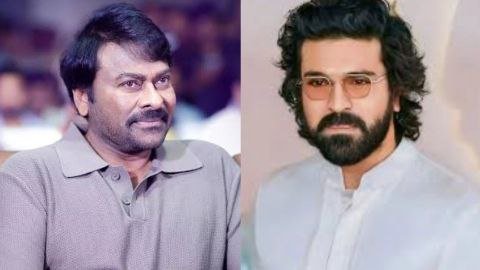Table of Contents
Chiranjeevi is a megastar and one of the best actors in South cinema but it seems the actor may have put his foot in his mouth over recent remarks about having a grandson. What was intended to be a light-hearted quip at a recent event has now gone in an unexpected and unwanted direction as social media users have objected to the sexist undertones within his words.
The Remarks That Sparked the Debate
Chiranjeevi was the Chief Guest at the pre-release event of Brahma Anandam when he made the controversial remarks. He began by jokingly comparing his home to a “ladies’ hostel,” mentioning that he feels like the warden of such a space since he is surrounded by women at home. His comment about his family situation, however, took a more pointed turn when he expressed a desire for a grandson to continue his family legacy.
He said, “When I’m at home, it doesn’t feel like I’m surrounded by my granddaughters; it feels like I’m a ladies’ hostel warden, surrounded by ladies all around. I keep wishing and telling (Ram) Charan, at least this time, have a boy so that our legacy continues, but his daughter is the apple of his eye…” Chiranjeevi went further, expressing his fears about his son, Ram Charan, potentially having another girl: “I’m scared that he might have a girl again.”
Ram Charan, Chiranjeevi’s son, and his wife, Upasana, welcomed their baby girl, Klin Kaara, in June 2023. Chiranjeevi also has two daughters, Sreeja Konidela and Sushmita Konidela, both of whom have daughters of their own, adding more young girls to the family.
Public Backlash: The Obsession With A Male Heir
While Chiranjeevi’s comment may have been intended to be light-hearted, it quickly triggered a wave of backlash online. Many users on social media pointed out the problematic nature of his fixation on having a male heir. In the year 2025, when conversations about gender equality and breaking stereotypes are gaining momentum, his words seemed to perpetuate outdated beliefs about male lineage and the value of male children.
One user on X (formerly Twitter) expressed their disappointment, saying, “The post highlights an issue that’s unfortunately still prevalent in 2025. It’s disheartening to see someone of Chiranjeevi’s stature perpetuate outdated gender biases. The obsession with a male heir is not only disappointing but also a reflection of a societal mindset that needs urgent change.”
Another user commented on the power of Chiranjeevi’s influence, saying, “Chiranjeevi, with his influence, he could be advocating for equality and breaking these stereotypes, yet here we are, discussing his fear of having another granddaughter. It’s time to evolve, to recognize that every child, regardless of gender, is a blessing and contributes equally to legacy.”
Regressive Thinking or Personal Preference?
What has irked many people is not only the comment but also the fact that a celebrity of Chiranjeevi’s stature made such a statement in public. Public figures are expected to be role models, and their words carry weight, especially on issues like gender equality. In the modern era, where women are breaking barriers in every field, the obsession with a male heir seems increasingly irrelevant and regressive.
Yet, others have defended the actor, suggesting that his words may have been an innocent expression of personal preference or family dynamics. However, it’s important to recognize that words, especially those from influential figures, can have a lasting impact on societal perceptions.
The Legacy Debate: Gender Equality in the Spotlight
Chiranjeevi’s remark about the continuation of his family’s legacy through a male heir misses an important point: legacies are not confined to gender. In today’s world, success, influence, and family heritage are not determined by the gender of one’s children. In fact, several families in business, entertainment, and other sectors have proven that legacies can be passed on by both daughters and sons alike.
One X user pointed out, “His granddaughter could also take his legacy forward. He only has to look at how his daughter-in-law and her siblings are successful in taking Apollo forward or Ashwini Dutt’s children. Regressive thinking.”
This observation highlights how outdated beliefs around gender roles are at odds with the current reality, where women are succeeding in every domain and contributing significantly to their family’s legacy.
Conclusion: A Wake-Up Call for Change
Chiranjeevi’s recent remarks have sparked an important conversation about gender roles, legacy, and the societal pressures around having a male heir. While his words may have been meant humorously or innocently, they inadvertently highlight the need for further progress in dismantling regressive gender biases that still linger in some parts of society.
As a highly influential figure, Chiranjeevi’s words hold power. He has the opportunity to set an example by embracing the notion that every child, regardless of gender, has the potential to contribute to family heritage and legacy. With greater awareness, the industry and society as a whole can move toward a future where gender no longer dictates the worth or role of an individual.
The conversation sparked by his remarks is a reminder that even in 2025, we must continue to challenge and redefine societal norms to ensure that every child is valued equally.





